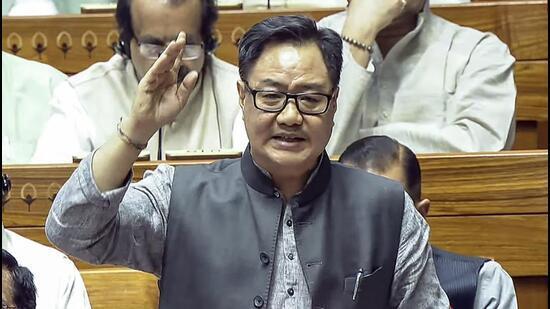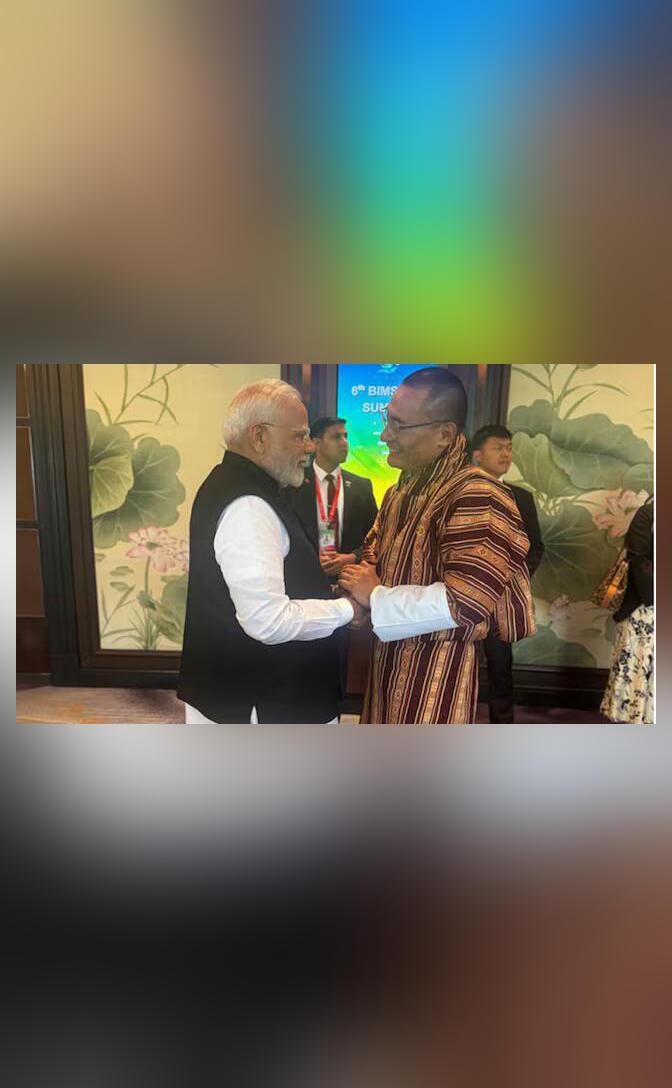
Opportunities for constructive debate and discussion are often lost when members of parliament prioritize grandstanding over engagement. In the Rajya Sabha, Union Minister Kiren Rijiju recently expressed his frustration with senior MPs who create confusion and raise issues in the House, only to abandon the discussion without allowing for a meaningful exchange of ideas.
The minister’s remarks came during a debate on the Waqf (Amendment) Bill, which aimed to revamp the Waqf Act of 1995. Rijiju targeted his criticism at senior member Kapil Sibal, who had attempted to draw parallels between the properties owned by Waqf bodies and those held by other religious organizations.
While Sibal’s intention may have been to highlight the perceived unfairness in the treatment of different religious groups, his approach only served to create confusion and deflect attention away from the actual issues at hand. By making sweeping comparisons without providing concrete evidence or context, Sibal’s comments only muddied the waters, rather than shedding light on the matter.
Rijiju’s criticism, however, was not limited to Sibal alone. He also lamented the fact that many senior members of the House often raise important issues, only to abscond without staying back to listen to the replies or engage in a constructive dialogue. This behavior not only undermines the democratic process but also creates a culture of disrespect and disdain for the institution of parliament.
The role of parliament is not only to pass legislation but also to provide a platform for the free exchange of ideas and opinions. When members of parliament prioritize scoring points over engaging in meaningful discussions, they not only fail to serve the interests of their constituents but also undermine the credibility of the institution as a whole.
In the absence of a genuine desire to engage and listen, debates in parliament often descend into petty squabbles and grandstanding. This not only wastes valuable time but also prevents the House from functioning effectively. When members of parliament are more interested in making rhetorical flourishes than in finding solutions to real-world problems, the public’s trust in the institution is eroded.
Moreover, the refusal to engage in discussions and listen to opposing viewpoints can have far-reaching consequences. When members of parliament fail to listen to each other, they not only miss out on the opportunity to learn from each other but also risk making decisions that are not in the best interests of the country.
The Waqf (Amendment) Bill, for instance, aimed to revamp the Waqf Act of 1995 and provide a more effective framework for the management of Waqf properties. However, the debate surrounding the bill was marred by confusion and a lack of engagement. Rather than focusing on the actual issues and challenges facing the Waqf sector, many members of parliament chose to engage in petty squabbles and rhetorical flourishes.
As a result, the bill’s potential to address the real-world challenges facing the Waqf sector was lost in the din of confusion and controversy. The Waqf sector plays a critical role in the lives of millions of Muslims across the country, providing essential services such as education, healthcare, and shelter. By failing to engage in a constructive debate, members of parliament missed the opportunity to address the real-world challenges facing this sector and provide a more effective framework for its management.
In conclusion, Rijiju’s criticism of senior members of the Rajya Sabha is a timely reminder of the importance of constructive debate and engagement in parliament. When members of parliament prioritize grandstanding over engagement, they not only undermine the democratic process but also fail to serve the interests of their constituents.
The Waqf (Amendment) Bill provides a prime example of the consequences of failing to engage in constructive debate. By focusing on petty squabbles and rhetorical flourishes, members of parliament missed the opportunity to address the real-world challenges facing the Waqf sector and provide a more effective framework for its management.
As a nation, we need to recognize the importance of constructive debate and engagement in parliament. We need to create a culture that values dialogue and discussion over grandstanding and rhetoric. Only then can we hope to create a parliament that truly serves the interests of the people and provides a platform for meaningful engagement and debate.






